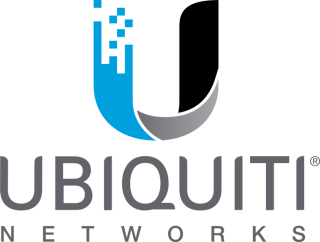Bring Your Own Device (BYOD) parties may appear lame, yet the BYOD trend in the office is more widespread than ever. BYOD is the policy of an organization that permits employees to bring their own mobile devices (phones, tablets, laptops, and wearables) to work for usage with corporate systems, software, network, and data. Employers and employees are currently embracing this widespread practice.
A new poll conducted by Tech Pro Research indicates that BYOD is on the rise. 74% of organizations polled have either adopted the trend or are preparing to do so, up from 62% approximately two years ago. There are a number of advantages to BYOD, but with every advantage comes danger.
A Few Advantages of BYOD
1. Corporate Expenditures Fall
If you do not need to purchase something, you do not have to pay for it. Companies are no longer responsible for procuring hardware because employees bring their own gadgets to the office. Also, employees do not require training to utilize the equipment they own (they are already well versed in that).
2. A Happy team means a productive team
Employees are much happy when they may use the mobile devices they already use and love, as opposed to being forced to use corporate-issued devices. They are far more familiar with them, making them easier to utilize.
Bringing your own gadgets can reduce the number of difficulties associated with using unfamiliar technologies. You are able to reply to requests more quickly, are more at ease in your work environment, and have the flexibility to work at any time, all of which contribute to an improvement in productivity.
3. Innovative Technology
Always evolving, technology is a constant. It is neither feasible nor cost-effective for businesses to supply the most advanced technology to all of their employees. Since BYOD devices tend to be more advanced than business-issued devices, the organization is able to take advantage of new technological capabilities and upgrades.
4. It Empowers IT
Employees are responsible for maintaining their equipment, including installing software upgrades. With their own devices, they are more independent and less dependent on their IT Department.
5. A Feeling of Ownership
BYOD enables freedom and a sense of ownership in that personal and professional gadgets are same, which can make employees’ work more personal. This can increase their sense of participation in company affairs.
How Vulnerable Is My Data Now That Everyone Is Happy?
How many employees have mobile access to your organization’s data? Did you know that every minute, 113 cell phones are lost or stolen? This week alone, 12,000 laptops and tablets will be stolen. Including, but not limited to, contact lists, emails, Internet credentials, credit card information, security codes, and business applications.
Security is impossible to guarantee. Given that mobile devices are essentially mobile targets utilized outside the organization’s protective walls (firewalls, threat management, etc.), it is crucial to implement a company-wide strategy and best practices to reduce the security risk exposure. Once the policy has been created, it is crucial to educate personnel on proper practices, implement effective device control, and support and enforce the policy. Listed below are some security measures that should be implemented.
Check frequently for updates
Users must verify that all operating systems and other software on their device are up-to-date. When receiving messages from Apple (or any other supplier), take immediate action. This is essential, as these types of updates contain security fixes that protect users from the “latest types” of assaults. The majority of updates are often accessible through the device’s settings.
Robust Passwords for All Applications
Consider your passwords. Does your birthday appear on your social media profile? Perhaps another significant date? Do you use a single password or variations? What about “123456” or “password,” the two most popular and readily compromised passwords? Each device and account should utilize a unique password. Moreover, a password/access pin is the initial step to take.
Every device and application password should be randomly generated and contain multiple characters. There are numerous password management applications available that will generate secure passwords on your behalf. You are only required to remember the password for this application. Go here for additional information on the characteristics of a strong password. Your Managed IT Services company will proactively manage password updates and changes for security purposes.
Understand Wi-Fi (the fact that you can access it does not mean you should!)
While not in use, Wi-Fi access should be disabled, and employees should only connect to trustworthy networks. No longer must you log into the Starbucks network to complete your work or the Wi-Fi at your local gym to enjoy Apple Radio. Ensure that your device prompts you before automatically connecting to networks deemed unsafe.
Do not overlook the Applicants
Do you know if the application is secure? Given that it is gratis, how could it not be? Many of these programs collect and distribute user data to advertising. Companies should give users with a list of approved “free software” that can be downloaded for security purposes as part of their BYOD policy.
Today, launching an app is as common as obtaining a credit card at The Gap; everyone does it. With the rate of mobile innovation, the barrier to entry for developing a mobile application is minimal, and mobile apps can be rife with vulnerabilities.
The best data is encrypted data
Encryption is one of the most effective security measures. It converts information into a supposedly “unbreakable” code that requires a key to decode. Encrypting data on mobile devices prevents unauthorized people from reading it if they cannot access it. So even if an employee loses their phone during a night out, your data is “considered” safe. When a device is lost or stolen, the BYOD policy should define the actions that employees must take to file a complaint.
Remember the Anti-Malware Software
Malware is a target for mobile devices. If you use a mobile device to access the Internet, you need anti-malware software. This is especially true for those who wish to utilize such a device for business. Not sure which Anti-Malware Software to utilize? Consult with your IT department or Managed Services Provider for advice.
Never ever store sensitive data on your device
Indeed, it’s obvious, but some people still do it. Do not save sensitive information or company finances on any of your devices. Period.
Mobile Device Management
Every organization must regulate the mobile devices with access to company information. Mobile Device Management (MDM) simplifies the device enrollment and configuration procedure. In addition, they proactively secure mobile devices by, for example, defining password policies, enforcing encryption settings, and selectively erasing corporate data. Some provide the ability to monitor and report on device software and hardware inventory.










